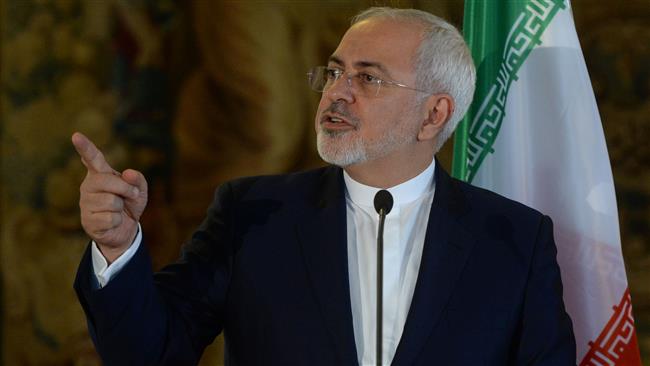
RNA - In a speech at the 53rd Munich Security Conference in Germany on February 19, Turkish Foreign Minister Mevlut Cavusoglu criticized what he called an Iranian “sectarian policy” in the region. Earlier, Turkish President Recep Tayyip Erdogan had accused Iran of promoting “Persian nationalism.”
Reacting on Friday, Foreign Minister Zarif of Iran told Fars news agency that Turkish officials had been entangled in the consequences of their “past mistakes” and were now attempting to play a blame game by making accusations against Iran.
“Unfortunately, the wrong policies of the Turkish government in the past have created a situation that they (Turkish officials) have to project the blame; it is a regret that they do so,” Zarif said.
Turkey has been involved in unauthorized military operations in Syria and is accused of having supported militants fighting in the Arab country, including members of Daesh, which is internationally recognized as a terrorist group.
“We hope that regional countries would fully comprehend the need for cooperation... and that such cooperation would turn into the topic of the day instead of such improper remarks,” the Iranian foreign minister said dismissively, referring to the anti-Iran comments by the Turkish officials.
Iran had earlier summoned the Turkish ambassador to Tehran for a diplomatic rebuke over the remarks by Cavusoglu and Erdogan. The Iranian Foreign Ministry had also warned that there was a certain ceiling to Tehran’s patience with the Turkish government.
‘Ungrateful, and with a weak memory’
On Thursday, in an interview with the daily Iran, Foreign Minister Zarif had recalled Iran’s supportive stance vis-à-vis the Turkish government following a failed coup attempt that sought to topple officials in Ankara in July last year and said the Islamic Republic did not expect the behavior that the Turks later displayed.
Following the coup, Iran voiced full support for the Ankara government, and Zarif soon traveled to Ankara to carry a message of support for the legitimate Turkish government. He even visited the damaged parliament building in the Turkish capital, shelled by rogue soldiers.
“[Our] friends [in Turkey] apparently have a weak memory...,” he said in the Thursday interview. “They both have a poor memory and are ungrateful toward those who have been kind to them and supportive of them.”
Also speaking at the Munich conference, the foreign ministers of Saudi Arabia and Israel seemed to echo one another — and Cavusoglu — by making anti-Iran remarks of their own.
‘The coalition of the defeated’
In his Thursday interview, Zarif called Saudi Arabia and the other regimes working in tandem against Iran “the coalition of the defeated.”
“Once... I said that the international anti-Daesh coalition is ‘the coalition of the repentant;’ now I say it is ‘the coalition of the defeated.’ All the parties that have failed in our region have formed a coalition and are saying things. I think one shouldn’t take them very seriously,” Zarif said in that interview.
‘The powerful side doesn’t taunt’
The Iranian foreign minister said the anti-Iran remarks were coming from positions of weakness. He said that while Iran has been speaking — including in the Munich Security Conference where Zarif himself represented Iran — of cooperation and dialog, the anti-Iran regimes have been “throwing wrenches in the works, which is often not what the powerful side does.”
“The powerful side should lay out its plans and speak of what the future should look like, not call others names,” Zarif said, urging that his speech in Munich be compared and contrasted with the three anti-Iran ones.
847/940